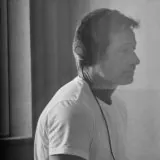Meet the Mutants: Our 1998 Os Mutantes Review

This article originally appeared in the February 1998 issue of SPIN.
Os Mutantes, the first Third World rock ‘n’ roll band, appeared in Brazil just in time to reinvent the real thing. Formed in 1966, the Mutantes’ sound not only piggybacked on the Beatles’ glorious pop experiments but also on the brainy poetics of the Tropicalia explosion led by Caetano Veloso, Gilberto Gil, and Tom Zit. The band’s original lineup—American-born singer Rita Lee, keyboardist/ bassist Arnaldo Dias Baptista, his guitar-playing brother Sergio—insisted they were mere “kindergartners” among those heavyweights. But the five albums they released between 1968 and their 1973 breakup are as musically ambitious and out-and-out blissful as pop music ever got—a testament I make unreservedly while groking less than half of their slangy Portuguese.
Out of print due to Arnaldo Baptista’s alleged technophobia, Mutantes tapes floated around punk-rock circles thanks to former White Flag bassist Pat Fear, whose sister studied in Brazil during the late ’60s: fan Kurt Cobain even tried, and failed, to get Mutantes to regroup and join Nirvana’s Brazilian tour. Fear and Cobain knew a great tune when they heard it, but they also undoubtedly appreciated Mutantes’ do-it-yourself desire to turn a scene inside out. The Mutantes catalog, which was recently reissued by Polydor Brazil, is available at select stores. including San Francisco’s Aquarius Records, as well as New York City’s Other Music and Rockit Scientist.
Recorded in 1968 as Brazil entered a military dictatorship, Os Mutantes’ self-titled debut drools with fey pop psychedelia seemingly reconstituted from scratch. Four of their songs are Veloso collaborations that also appeared on the duo’s manifesto-like Tropicalia ou Panis et Circuses [Tropicalia or Bread and Circuses], which was released the same year. But the fuzzstorm guitars, vaudeville vocals, “Penny Lane” trumpets, and “Strawberry Fields” fake fadeouts only sound weirder amid the record’s bloco drumming (from northeastern Brazil), funky sambas, and operatic brujeria juju. Os Mutantes took to heart the tropicalist imperative of mixing all aspects of Brazilian culture—urban and rural, savage and sophisticated, native and foreign—into something politically radical, artistically strange, and personally transforming.
Contrary to received wisdom, the band’s collective bomb didn’t drop with Os Mutantes and their 1969 follow-up, Mutantes. Their subsequent albums—1970’s A Divina Comédia ou Ando Meio Desligado [The Divine Comedy or I’m Not Paying Attention], 1971’s Jardim Elétrico [Electric Garden], and 1972’s Mutantes e Seus Cometas no Pais do Baurets [Mutants and their Comets in the Country of Baurets]—cooked up an increasingly individual and eclectic feijoada of a sound that mimicked and timelessly mutated a truly incredible array of Western and Brazilian styles.
The Baptista brothers, in a supposed fit of macho-itis, allegedly kicked Rita Lee out of the band in 1973 (and recorded a 1992 comeback, O “A” e o “Z” [The “A” and the “Z”], without her). She did fine, thanks, and went on to become one of Brazil’s preeminent vocal stars. Arnaldo formed the eccentric Patrulha de Espacio [Space Patrol], and continues to paint and release records even as cards reportedly slide from his mental deck. Sergio has developed into Brazil’s most beloved guitar hero, recording with Airto Moreiro, Phil Manzanera, and even Rita Lee. No tribute albums, comeback tours, or ghostwritten symphonies have yet been announced.
The post Meet the Mutants: Our 1998 Os Mutantes Review appeared first on SPIN.
Link to the source article – https://www.spin.com/2021/10/meet-the-mutants-our-1998-os-mutantes-review/
Recommended for you
-
Vangoa 61-Key Light-Up Keyboard Piano for Beginners, 350 Tones & Timbres, 3 Teaching Modes, With Microphone, Black
$89,99 Buy From Amazon -
Vangoa 3L3R 6 Pieces Semi-closed Guitar String Tuning Pegs Tuner Machine Heads Knobs Tuning Keys for Acoustic or Electric Guitar, Chrome(Type B)
$13,95 Buy From Amazon -
Eastar AS-â ¡ Student Alto Saxophone E Flat Gold Lacquer Alto Beginner Sax Full Kit With Carrying Sax Case Mouthpiece Straps Reeds Stand
$309,99 Buy From Amazon -
Roland SPD-SX Percussion Sampling Pad with 4GB Internal Memory, Black medium
$649,99 Buy From Amazon -
Kala Brand Music Co., 4-String Ukulele, Right, Natural, Ubass BMB-FS
$299,00 Buy From Amazon -
Drum Dampening Gel Pads For Drums Tone Control, Non-toxic Silicone Drum Dampeners, Clear Resonance Pads For Drum Muffling (18 Pack)
$7,95 Buy From Amazon -
Hercules DJSpeaker 32 Party | 15-Watt RMS monitor speakers with tempo-synced light show
$129,99 Buy From Amazon













Responses